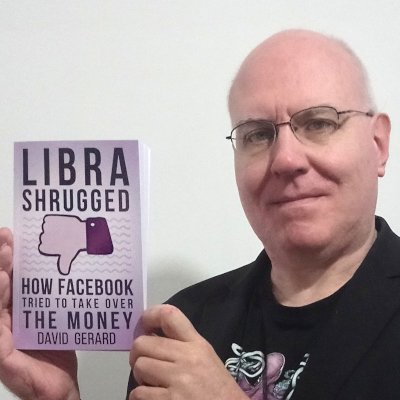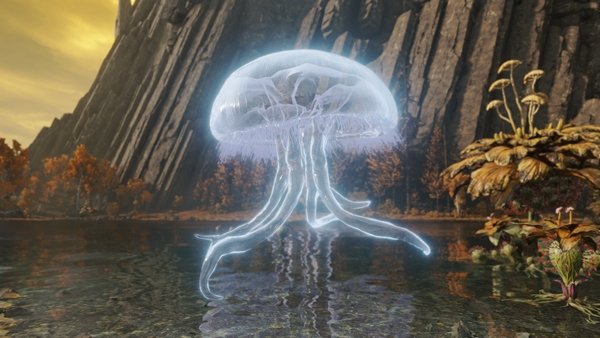Do they think the hands-off treatment that giant corporations that basically print money get is going to somehow “trickle down” to them, too?
Because last I checked, the guys who ran Jetflicks are facing jail time. Like, potentially longer jail time than most murder sentences.
…but letting OpenAI essentially do the same without consequences will mean Open Source AI people will somehow get the same hands-off treatment? That just reeks of bullshit to me.
I just don’t fucking buy it and letting massive corporations just skirt IP laws while everyone else gets fucked hard by those same IP laws just doesn’t seem like the best hill to die on, yet plenty of people who are anti-copyright/anti-IP laws are dying on this fucking hill.
What gives?
I am personally of the opinion that current IP/copyright laws are draconian, but that IP/copyright isn’t inherently a bad thing. I just know, based on previous history in the US, that letting the Big Guys skirt laws almost never leads to Little Guys getting similar treatment.
Also, I hope this is an okay place for this rant. Thanks for keeping this space awesome. Please remove if this is inappropriate for this forum, please and thank you.
I really want to see someone use the lack of any AI accountability as an active defense in a copyright trial for piracy. Force the court to compare the “theft” of a digital item like a book or movie that is used a few times probably, to copying something that is then effectively used internally every time the AI generates something.
I’d like to point out that the title is conflating two very different acts of “piracy”. What I think of as “the little guy” piracy is content “theft”, whereby they acquire some content they didn’t pay for to enjoy. What “the big guy” piracy looks like is licensing theft, whereby they take something “freely available on the internet” and use it to make their own product which directly affects the creator.
The world in which I watch some P&R or play some Warhammer for free in my little cave looks identical to the world in which I didn’t do that. The world in which I read all the Warhammer lore and make a game and sell it using the same setting and characters without talking to GW directly devalues their IP and the world looks different (this is effectively what AI does as it can be made to reproduce a lot of the training data).
I’d love to live in a world without DRM and “always online” and purchased**TM (arbitrarily revocable) games, and convenient and affordable ways to access media so piracy isn’t necessary and the degree to which it would still happen would be so minor we wouldn’t even need laws for it. I support the kind of piracy that rallies against that shit, I do not support arbitrary license theft.
I think you’re on the money there. Copyright was originally intended as industry regulation, a way to prevent larger book publishers from just copying a smaller publisher’s book on day one and flooding the market with their copies. It’s applied to many more industries than just books (good!) but also to a wider group than actual publishers (bad!). When someone running a massive free ROMs site gets taken down, that’s probably reasonable, they’re playing the role of a publisher there and unfairly undercutting the competition (although the penalties in the US are still absurdly steep, as they usually are for individuals in this country). But when someone gets attacked for posting an image on social media, or streamers have to worry about the music playing in their games, or ISPs have to enforce against downloaders of pirated software, or modders have to be careful about linking their mod in such a way that no original code is included, that’s not what copyright should be.
It is not, in fact, bad that copyright applies to a wider group than publishers, unless you are using “publisher” extremely broadly to apply to “creators”.
If “someone gets attacked for posting an image on social media”, that rarely means “lawyers came after me because I posted a screenshot of a page from Sandman”. It often means that the poster took someone else’s art, snipped off the artist’s signature, and posted without attribution, and the artist is rightfully angry. Copyright is what enables that artist to continue to eat and make more art. The same goes for music, or software, or movies.
Sure, the system is horribly abused by uneven power structures, as every system in the world is. For music especially, we all know that the takedowns are usually issued by people who have nothing to do with the creation of the protected work, because of the way licensing and rights grants work in that industry. Automated takedown systems (which have to exist because of the scale of online content) also have no reasonable appeal mechanism, and the people making the decisions don’t (and can’t) make reasonable assessments about fair use and transformative works.
I’m not saying that everyone who participates in piracy is a bad, wicked thief–I absolutely participate in it myself. But copyright is not the villain here; that’s just trying to make us feel justified about our actions. Someone made a creative work I enjoyed, and I don’t have a moral right to the product of their effort for free.
Copyright law is full of ambiguities and gray areas, some intentional and some unintentional. The concept of “fair use” is an example of an intentional gray area, since the idea is that society as a whole will benefit from allowing people to skirt copyright law in certain circumstances, and lawmakers can’t possibly hope to enumerate every such circumstance. It then falls on courts to determine if a given circumstance falls under “fair use”. The problem is courts move very slowly when faced with a new circumstance that hasn’t been litigated before, and that’s what’s happening with AI companies training AI on copyrighted works. Once decisions have been made and stare decisis is established, then they’ll move faster. The NY Times vs OpenAI is the case to watch IMO, since that’s the biggest one challenging the idea that training AI is fair use.
Excellent comment.
Do you know if the lawsuit that involved Sarah Silverman is going? Because I originally thought that one would have more legs, but maybe because the companies using the books3 corpus all dropped use of them, the case was dropped? I’m honestly unsure.
It’s just that the fact that any of them used books3 to begin with should say everything. Everyone knew books3 was the entirety of private torrent tracker Bibliotik. It was not hidden. Bibliotik isn’t just regular old ebook piracy either, they distribute the tools to remove DRM from ebooks. So they’re using a corpus literally made from pirated ebooks that have potentially had their DRM stripped. I just seemed like a big, easy admission that they were more than happy to use unscrupulous methods to profit.
As someone who was booted off of Bibliotik because it’s damn impossible to keep ratio there, it’s mind boggling to me that it wasn’t a bigger deal how widely used books3 was.
I haven’t followed the Sarah Silverman case, but I think it’s likely that’ll end in a settlement. NYTimes is less likely to settle, since they seem to be trying to set a precedent, and they’ve got the resources to do that.
It’s just the consistency of the ideology I assume. “Information should be free” applies to blood sucking corporations as well as to private individuals
Mike Masnick seems to have an unfortunate lack of self-awareness as to why the Heritage Foundation keep inviting him onto their podcasts
No idea who he is lol
He’s been writing about copyright etc at Techdirt since basically forever.
I have not followed any current debate, so this is just my own thoughts. I expect any battle between Disney and Microsoft to end with a deal where consumers and independent producers are worse off.
Similar to how YouTube often hands out copyright strikes for musicians uploading their own music, in a possible future you might need an AI license to upload any work to any platform of size. I mean, you don’t technically have to, it is just that that the AI driven filter will otherwise strike you faster than Tumblr hiding images of trans women. Oh, and when you fold and get the AI license, you notice that it includes signing away your rights to not have your uploaded work be part of the AI training materials.
Maybe I am just jaded. But until AI crashes and burns the in my opinion most likely outcome of legal proceedings is splitting the loot in proportion to the power of the interested parties. On the other hand I don’t expect anything good to come out of letting AI companies run wild. So I dearly hope they destroy each other, but I expect them to embrace.
They don’t think that.
Not my fight either way tbh
Judging by my extensive arguing with people like this on reddit they fall into one of two camps:
-
Once bigcorp creates panicea AIs, they won’t need to pirate anymore because they will be able to ask ChatGPT to make all the movies and music they need.
-
They don’t think that additional copyright protections will ever be able to touch Microsoft and can only ever hurt the little guy.
-
Nobody thinks that. We’re way more irrational than that. We hate copyright because of the copyright trolling and companies using leverage instead of trading value. We want the pirates freed, and we wanna get rid of the AI people so our little sisters can keep their income selling their shitty furry porn commissions. Real art isn’t going anywhere. It’s the low-medium skill stuff that’s completely invalidated.
you’re wrong but that’s so obvious it’s boring
but that weird bit of anti-furry shit you slipped in here looked significantly more interesting! and hey, what’s this in a thread about republicans doing anti-LGBT+ shit during pride:
If you house the fascists and bigots, you become a house of fascists and bigots. It doesn’t matter what the individual believes if they continue to give audience to those people. They become indistinguishable from them.
And when you’re just a normal straight person who gets the willies when gay people hit on you, fuck you right?
Normal straight dude here. I can’t tell you how crazy often I have gay dudes creeping their way into my life just to eventually say they’re trying to get in my pants.
bonus post: here’s you in a thread about a nude deepfake made of a 15 year old girl without her consent:
Eve seen a deep fake nude of someone ugly? People make them because they wanna see you naked. Can’t see how that’s an insult.
so, ah, there’s that. fuck off now.
an evergreen classic









